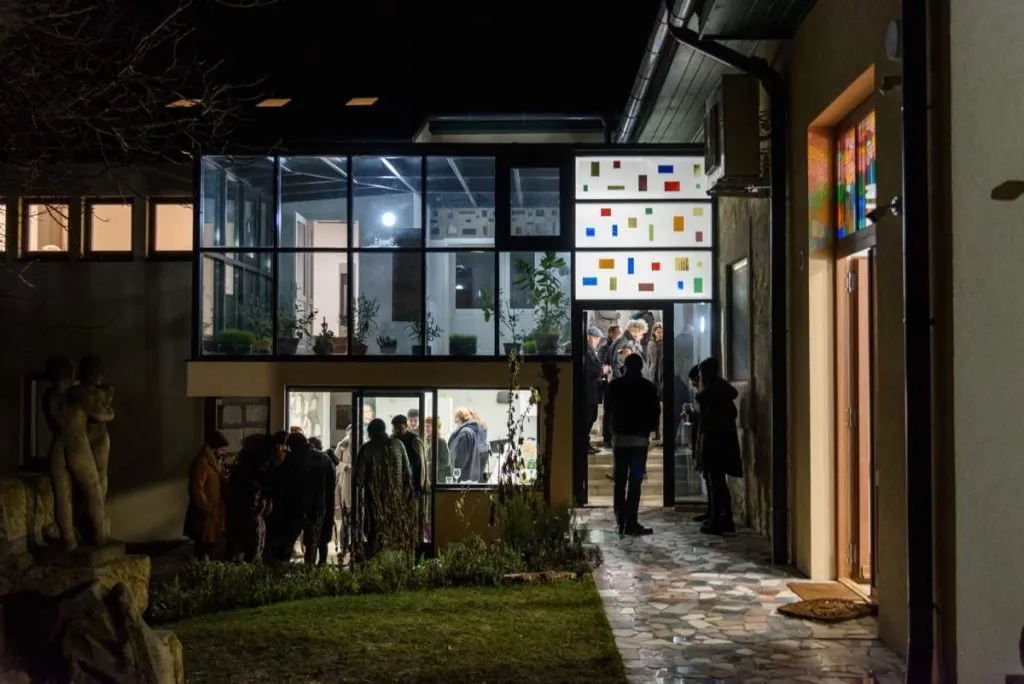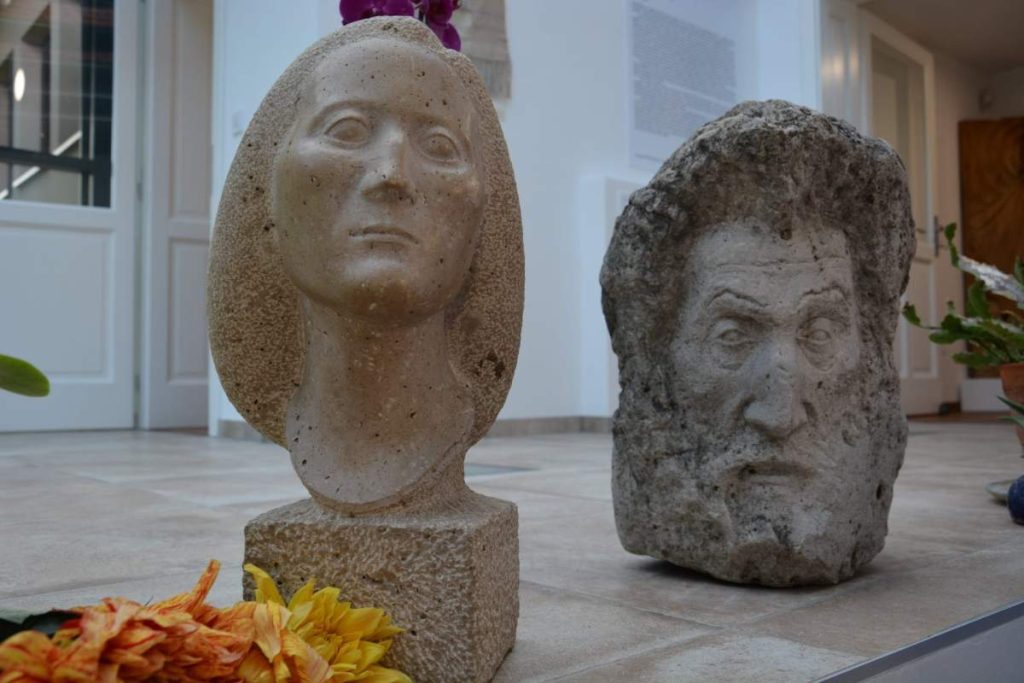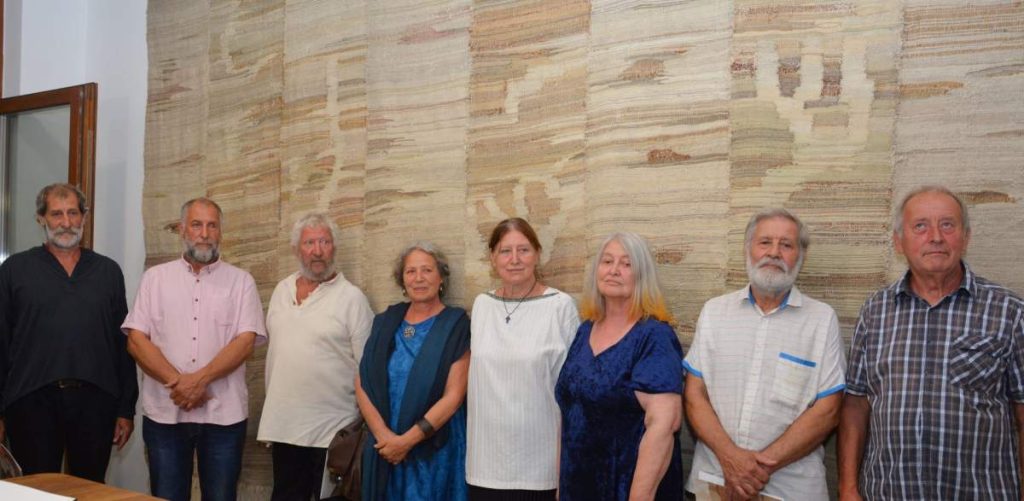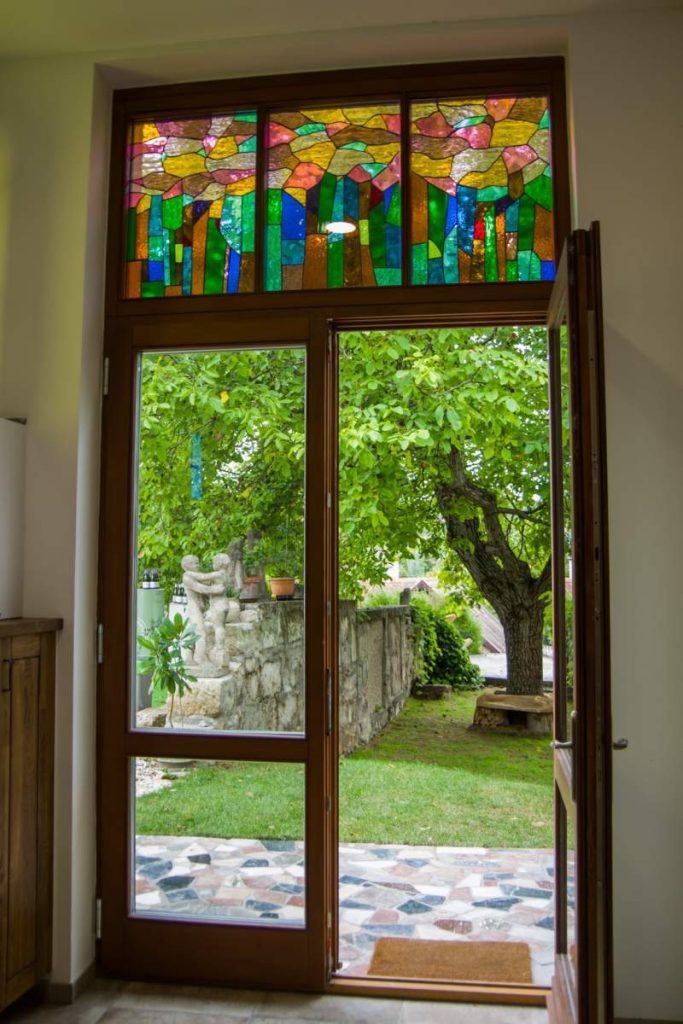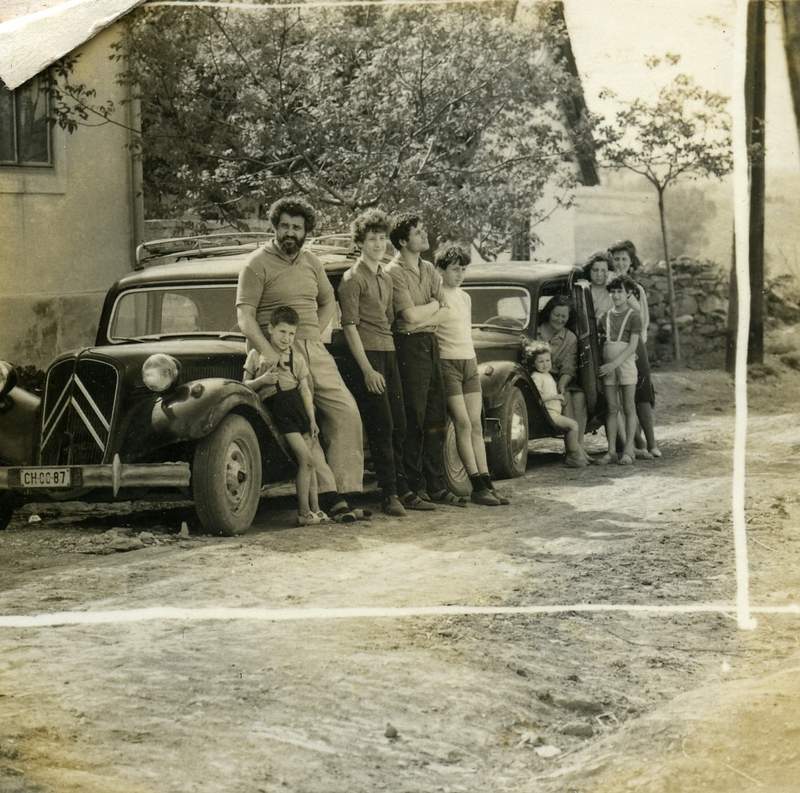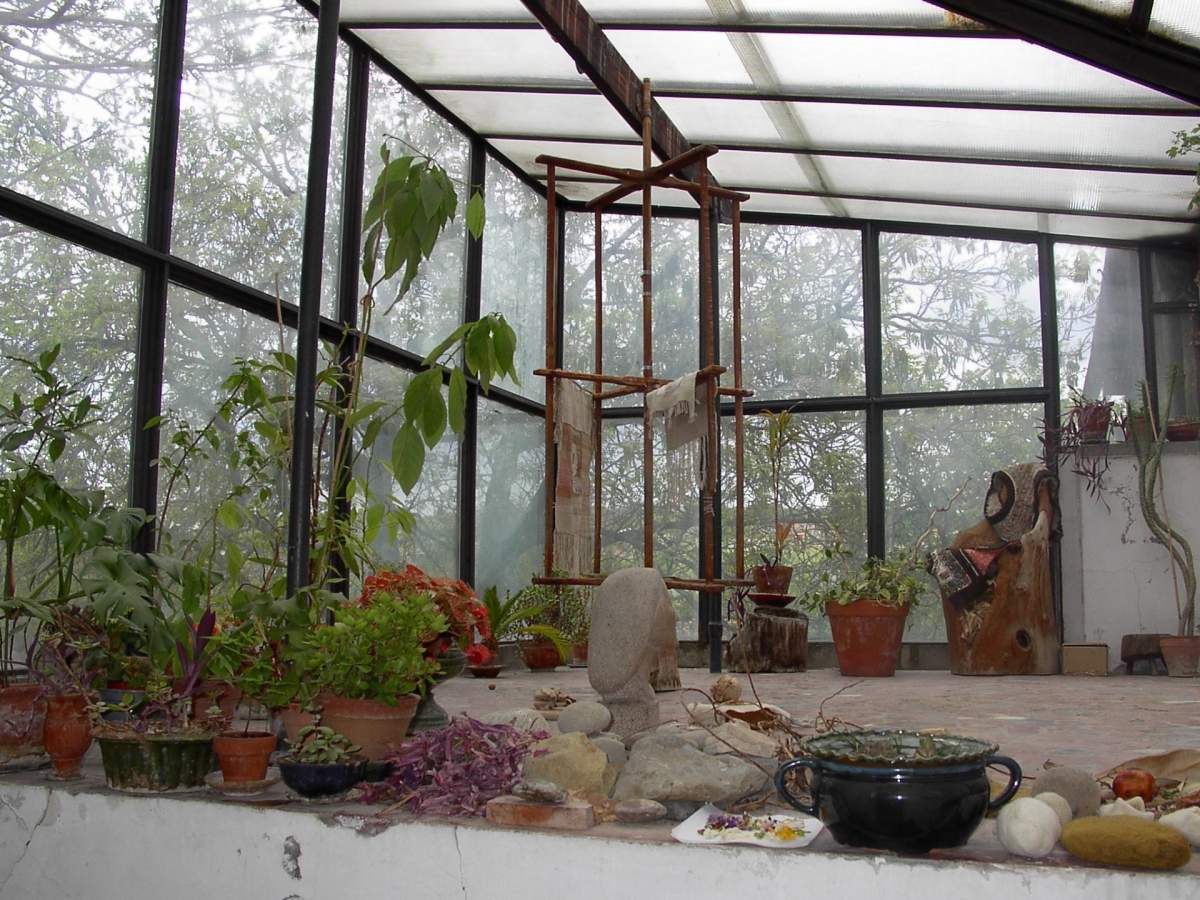Introduction
“Etyek is the workshop, the studio, the workplace, and home. An artifact in itself. Objects, beauties, they are important. It unites Transylvania with the Transdanubia, and the North with the South. It is the gathering place of the past, the very ancient past, and of the present, obviously. Etyek has become a symbol, as it proved and constantly proves the contemporary opportunity of sense, intellect.
Katalin Dávid art historian, 1996
In the words of Tamás Deme cultural researcher, ’the Etyek Workshop is a legend’. It is indeed a fairy-tale coming true in front of us, a kind of family story, which is fantastic on its own. However, it is about more, and it has not come to an end yet.
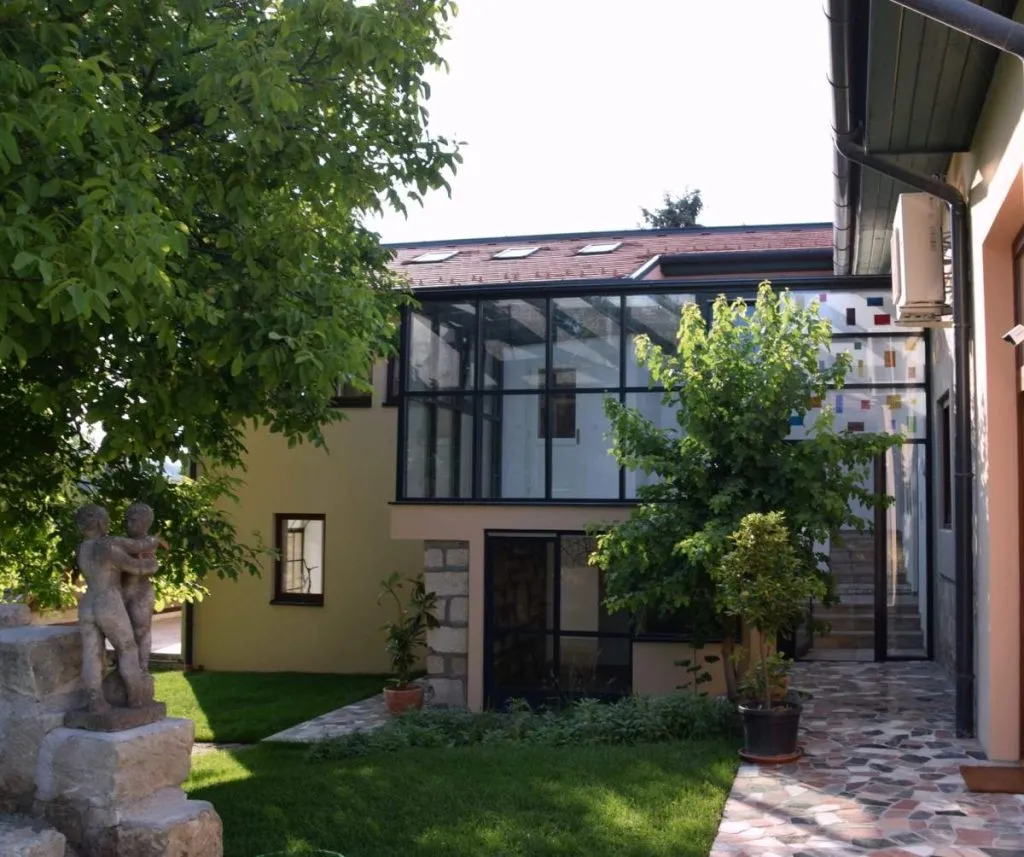
Béla Tolcsvay, Kossuth-prize winning composer and musician established the Etyek Workshop Foundation in 2020, as a friend and respecter of the art family of Etyek. In parallel, Gyula Lucza, the chairman of the board of trustees of the Foundation, renovated and modernized the former living-house and studio. In addition to preserving the heritage of the artist community of the Etyek Workshop established in the 1970s by the Hungarian Heritage-prize winning artists Györgyi Csókos Varga, and Lajos Csákvári Nagy, the mission of the Foundation includes the research and display of its creative work, the continuity of its intellect, and its integration into the local cultural life of the community, as well as into the domestic and international cultural scene. Further mission of the Foundation include the preserving of the Hungarian culture and tradition, and the facilitation and support of those cultural initiatives that are in a wider sense part of the Hungarian cultural heritage.
Tradition cannot be created, only a community, which preserves its tradition. Therefore, we are devoted to become an active and defining forum of the Hungarian culture. Beside our own exhibitions, workshops and symposiums, we invite cultural programs and artists from within and outside the country. We also support scientific research, the preservation of traditions, artistic work and young artists as well.

Creative work, the exchange of ideas and artistic experience perfectly connect to the wine-making traditions and gastro-culture of Etyek. We are also eager to fulfil explore and make the most of these potentials and community-building power.
Finally, as a reflection of the above motto, the Etyek Workshop is both an artisan and an intellectual studio, where the prolific artistic community and the appreciative audience practice their traditions through the act of creation.
The structure of the Foundation:
- founder: Béla Tolcsvay
- chairman of the board of trustees: Gyula Lucza
- members of the board of trustees: Koppány Nagy, Zsigmond Lucza
Staff
Zsigmond Lucza, painter, artistic director of the Etyek Workshop
Zsuzsa Strasser administrator
Erzsébet Lelkes-Sághy cultural organiser
Our Story
Györgyi Csókos Varga and Lajos Csákvári Nagy graduated at the Hungarian Academy of Fine Arts in the end of the 1940’s. Their masters were Aurél Bernáth, István Szőnyi, István Boldizsár and Géza Fónyi. The couple settled down in Csákvár, then in 1955 the family moved with five children to Magyar Street in Etyek, where three other children of theirs were born later.
The artists who cultivated a classical artistic style that they had had learnt during their academic studies, became familiar with organic materials and their artistic use in Etyek. By the end of the 1960s, early 70s Györgyi Csókos Varga acquired the art of weaving and spinning from those Transylvanian women who were resettled in Etyek. She established a weaver’s house, where with the local women they revived and transmitted to further generations the Hungarian traditional folk weaving-culture. Parallelly, Csákvári Nagy Lajos taught wood carving to interested youth from the town, and also from other parts of the country. Sculpture, weaving, spinning, and all these folk art types melted in their lives with their classical creative work. All their eight children were raised in such spirit, who all bear and pass on their parents’ artistic and creative heritage. The ‘Nagy’ family and all the artists and apprentices gathered around them formed the ‘Etyek Workshop’.
Due to family relationships and intellectual connections, they were part of the Nomadic Generation, and their house standing in Magyar Street soon became its iconic centre and meeting point. Participants of the workshops organised there had the opportunity to not only acquire the techniques of traditional crafts, but also the spirit represented by the Nomadic Generation. Similarly to what the “táncház” (dance hall) movement meant for folk music and folk dance, the Etyek Workshop served as a symbolic centre for materialistic manifestations of the mother tongue, and its participants formed a community centred around culture and art. The spirit of the workshop established by the artist couple has inspired a great number of artists wo are active today. It is our community’s responsibility to cherish their memory. Their art is a testament to how an artistic approach based on handcrafting traditions can organically integrate valuable knowledge imbursed in the past into present art, and this phenomenon applies to many other cultural spheres as well beyond fine arts.
